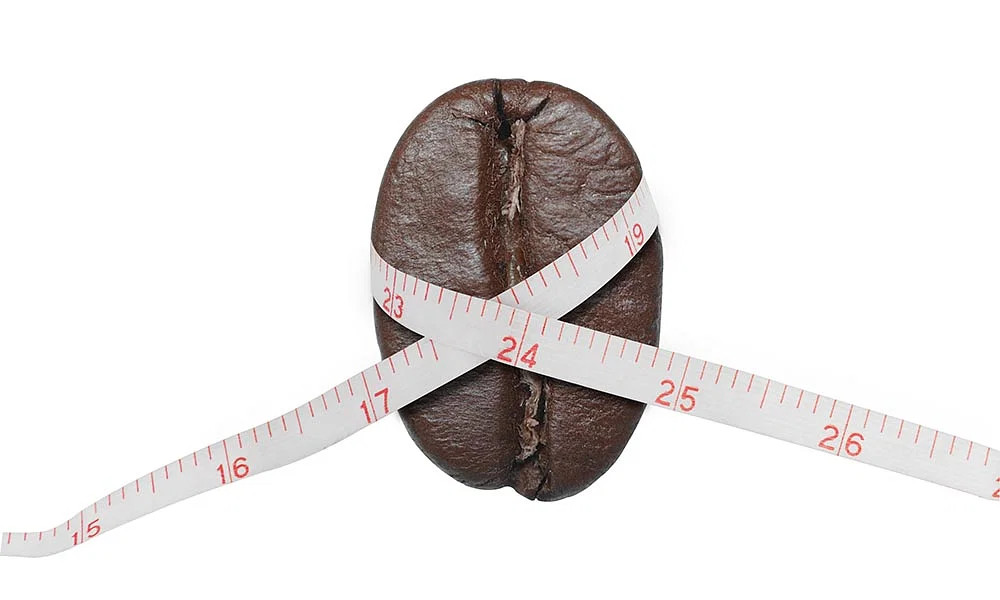

What exactly do we mean by “fat-burning coffee”? We’re talking about plain black coffee, without sugar or milk, which—according to some scientific evidence—can stimulate metabolism and promote lipolysis, that is, the breakdown of stored fat. But the real question is: is there any scientific basis for saying that coffee burns fat? Let’s find out.
Caffeine and metabolism: does coffee really burn fat?
The active ingredient in coffee is caffeine, a methylxanthine that acts as a stimulant on the central nervous system. Numerous clinical studies, including one published in the American Journal of Clinical Nutrition (1980), have shown that caffeine intake can temporarily increase basal metabolic rate by up to 11%. This means the body burns more calories even at rest.
In addition to boosting metabolism, caffeine stimulates the release of adrenaline, a hormone involved in activating lipolysis. This prompts the body to release free fatty acids into the bloodstream, which can then be used as an energy source. According to a study from the Journal of Applied Physiology (2002), athletes who consumed caffeine before exercising showed a significantly higher fat oxidation rate compared to those given a placebo.
Taking a cup of coffee before physical activity can increase endurance, enhance performance and promote fat burning. This effect is particularly noticeable in endurance sports, where the body adapts to using fat as its main energy source. It’s a strategy often used by athletes to boost performance and maximise calorie use.
One important factor not to overlook is the quality of the coffee itself. Specialty coffees, for instance, are rare and precious varieties that deliver a unique aroma and an exceptional cup. They must score over 80 points out of 100 in the cupping protocol of the Specialty Coffee Association. These are single-origin coffees of exceptional character—each sip offers a flavour journey to the land of origin.
Stimulating lipolysis and fat oxidation
However, it’s not all smooth sailing. The body can develop a tolerance to the effects of caffeine, which diminishes its impact over time. A study published in Pharmacology, Biochemistry, and Behavior (1981) found that after 12 days of regular caffeine intake, the boost in metabolism dropped significantly. Therefore, to gain real benefits, it’s important to avoid constant and repetitive use.
Coffee also affects thermogenesis, the process of heat production in the body using calories from food. A study in Obesity Research (2004) found that coffee can increase post-meal thermogenesis, contributing to energy expenditure. Caffeine may also suppress appetite temporarily, although this effect varies from person to person and tends to wear off with regular use.

Green coffee vs roasted coffee: which burns fat better?
Green coffee, which hasn’t undergone roasting, contains chlorogenic acid, a compound that may impact glucose metabolism and fat absorption. Some early studies have suggested that chlorogenic acid may aid in weight management. However, further research is needed to confirm these findings on a large scale. The raw green coffee from Caffèlab should be consumed only after proper roasting and grinding.
Genetic variations in caffeine receptors (e.g., the CYP1A2 gene) affect how quickly our bodies process caffeine. Some people, known as “slow metabolisers”, may experience side effects even from small amounts. This explains why coffee affects people so differently, making it hard to give universal recommendations.
Coffee can be a valuable ally in weight management, but it’s no miracle cure. Its fat-burning effects are real, but modest, and depend on factors like lifestyle, genetics and eating habits. Used alongside a balanced diet and regular exercise, it can certainly provide an extra boost. But on its own, it’s not enough.